The World’s Columbian Exposition of 1893 showcased many exciting attractions that were new and unusual to the tens of millions of visitors—electrical devices powered by mammoth dynamos, unfamiliar music and dance from Asian and African cultures, and a giant rotating observation tower. In some instances, though, fairgoers found comfort in the familiar, as in the case of when this immigrant ventured into German Village on the Midway Plaisance and reconnected to fond memories of the Fatherland.
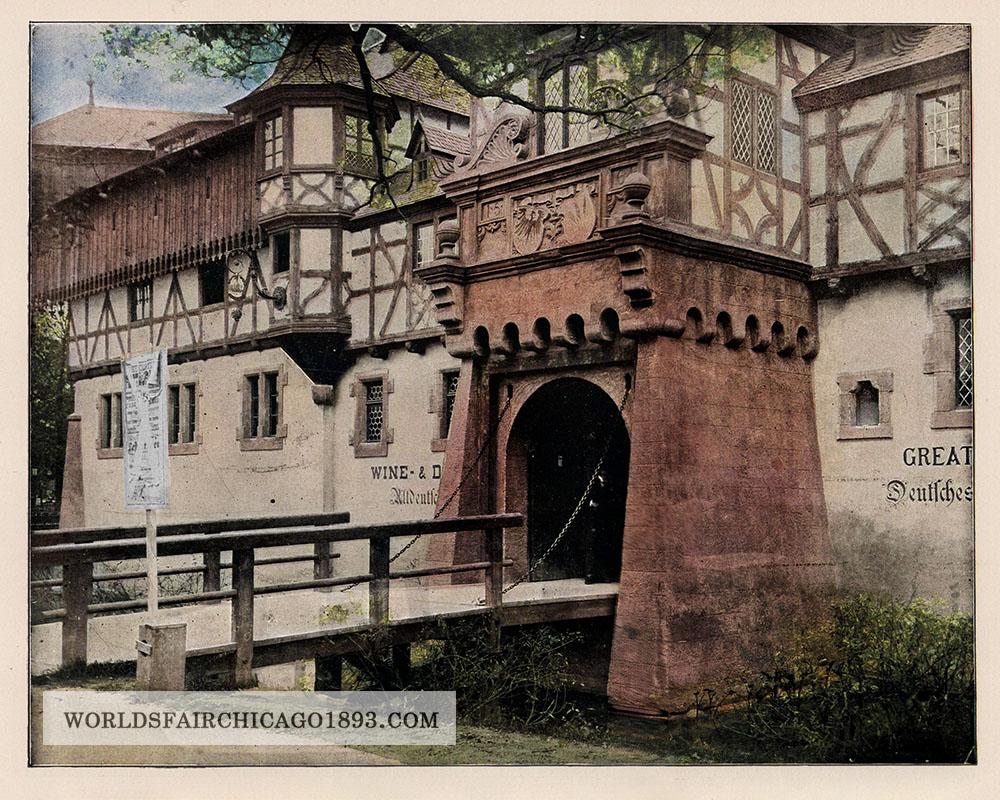
Entrance to the German Castle in the German Village at the 1893 World’s Fair. [Image from Picturesque World’s Fair. W.B. Conkey, 1894; digitally edited.]
LIVED OVER OLD TIMES
MIDWAY PLAISANCE ROMANCE
What the Homesick Man Found in the German Village to Recall Halcyon Days in the Fatherland — Prose Pictures of the Village
While most of the people seemed to be merely loitering from one place to another, this old man knew where he was going. He tapped his cane on the hard gravel walk and pattered along at a lively gait. That is, it was a lively gait for one of his age. The hair which stuck out under the edge of his hat was almost snowy white. His face, although well preserved and ruddy, showed deep wrinkles and crow feet. He was looking straight ahead and laughing to himself in an expectant way. When he laughed it could be observed that his lips folded in on each other. This showed that quite a number of teeth were missing.
He wore a blue coat, which was very plain except for the close row of bright metallic buttons down the front. His vest was so high that collar and cravat were not needed. He had a handkerchief around his neck and knotted in front. Sometimes you see such coats, vests and knotted handkerchiefs on the north side, but the people who wear them learned their ways in the fatherland.
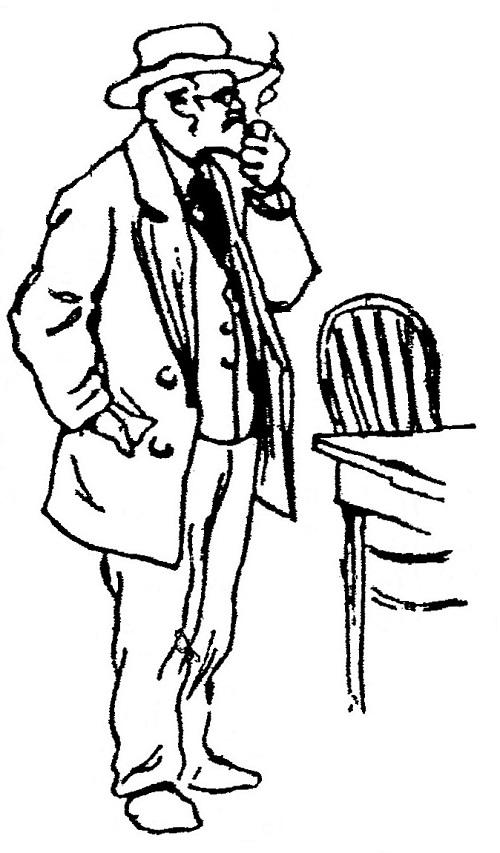
Glimpse of the Fatherland
The reason the old gentleman smiled and seemed to be in a hurry was that he could see the thatched roofs ahead and hear the music from the band in the German Village, Midway Plaisance. So he passed right by the bands of music and the fantastic people from Turkey. He had his eye on the white wall with its painted black eagle.
The first thing he saw when he passed through the arched doorway was an old barn—and such a barn. The grassy roof lay in sheltering thickness upon the quaint walls. Doors guarded by heavy timbers and these were joined in fancy designs by large cross-beams. Straw choked the opening to the loft. Bright wisps had caught in the green branches which made a deep shade around the snug building. Under a little projecting roof were two shelves with beehives. The old man had never expected to see any beehives like that again. They were made of woven reeds and each had a little doorway and threshold for the buzzing workers.
The paths were spick and span under foot. In the patches of green grass were homely flower beds, blooming with old-fashioned flowers.
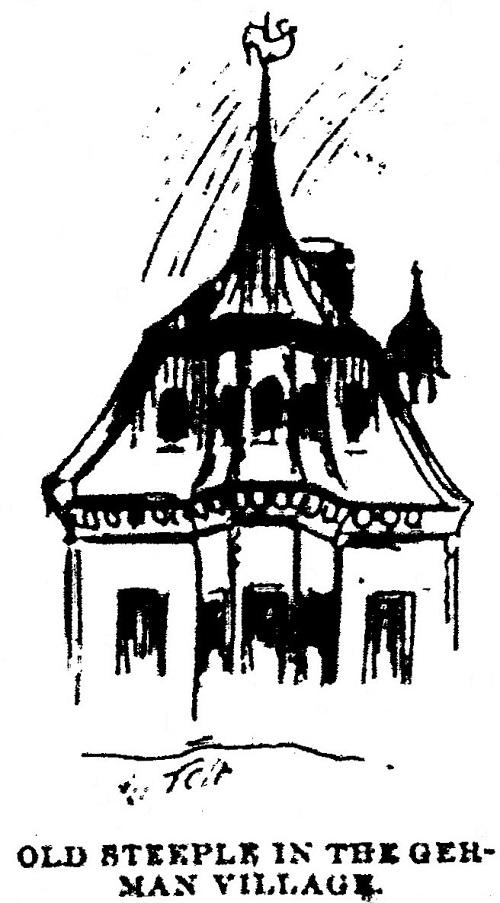
Quaint Steeples and Dormers
The two stables and the little cottage had quaint dormer windows, pudgy steeples and broad, whole-souled doors, which seemed to tell of welcome and prosperity.
On the wooden hooks over the stable door hung some harness, with big buckles and stout straps. Most of the visitors merely glanced at it. The old man stopped to fondle it and chuckled to himself. He saw a dove cote on a pole. A wooden weather vane creaked and turned on the top of the cottage. Over a little winding stream was thrown a rustic bridge which would last a century. This bridge interesting the old gentleman. Then he noticed that the hinges on the doors reached halfway across the oaken panels. They reminded him of something which was a good many years behind him.
Everything conspired to give him a good time. As he lingered fondly and in admiration he heard no language except the one which made harmony with the view. He found little stores where they sold things made across the water and he put a few in his pocket.
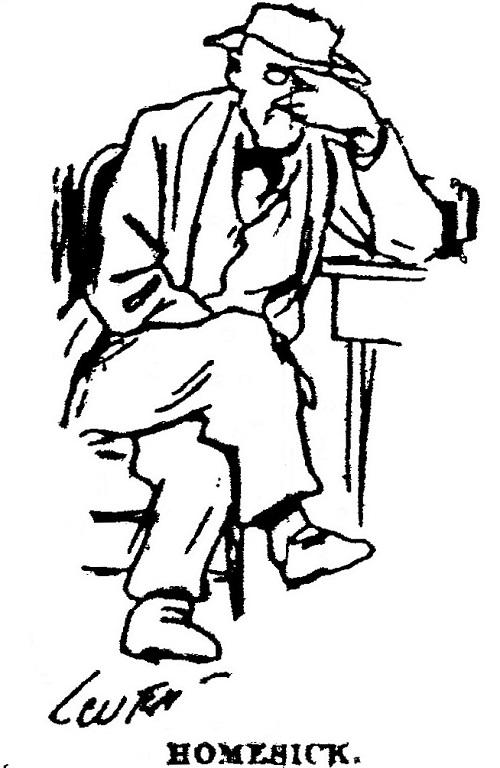
Brought a Reminiscent Stein
Finally he reached a table which was shaded by an evergreen tree. He sat there, and a young man named Philip brought him something that he called a stein. The musicians came in wearing the uniform which he remembered so well, even if he had not been a soldier for forty years. They played Abt, Suppe and Mendelssohn. His cup of joy ran over.
It is a long way home. The frugal man who has worked hard and saved in a small way cannot make the trip. The old man had often thought he would like to go back, but it was only a vague hope. He never really thought it would be realized. That was why he felt so happy. He had not gone to Germany, to be sure, but the next best thing had come to pass. They had brought Germany over to him.
SOURCE
“Lived Over Old Times” Chicago Record Jun. 8, 1893, p. 3.
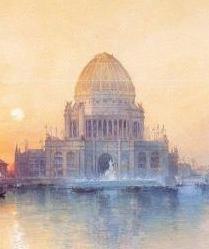
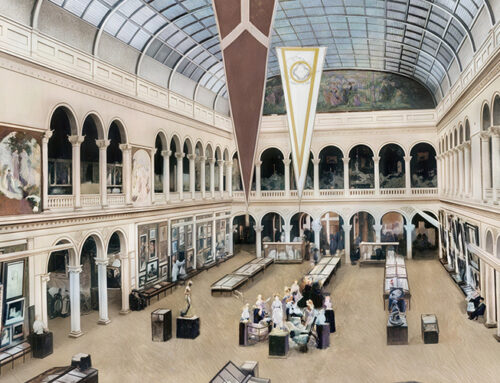
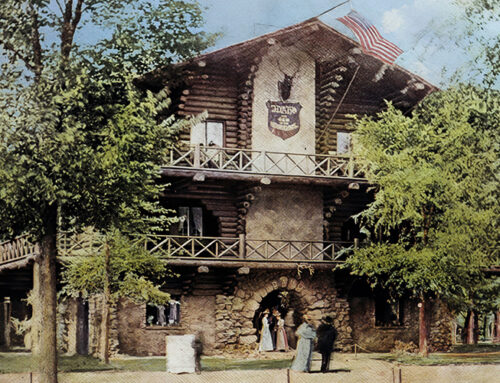
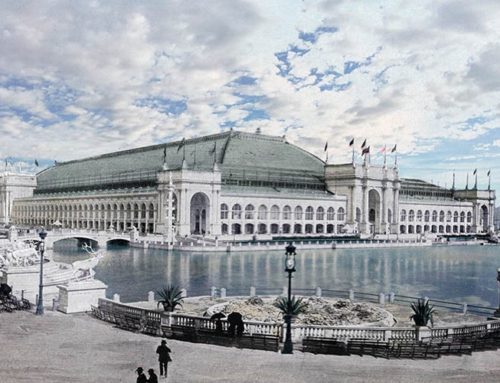
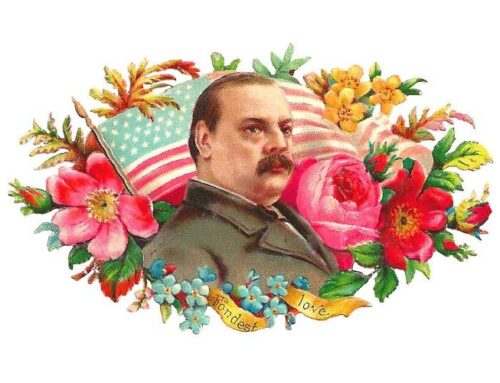

Leave A Comment